- The Rolls-Royce Spectre Black Badge has a lot more power than the standard model.
- We expected this to result in better track performance and worse range.
- But, in fact, our testing showed just the opposite.
Tested: 2025 Rolls-Royce Spectre Black Badge Is Both Better and Worse Than the Base Model
We thought the Spectre Black Badge would offer more performance and less range, but our testing showed exactly the opposite
So this is weird. We tested a Rolls-Royce Spectre Black Badge fully expecting it to outperform the standard variant on our test track while simultaneously doing worse on the Edmunds EV Range Test. But now that we've run the numbers, we're left scratching our heads.
The numbers don't lie
The Black Badge seems like it would have an advantage. Its 102-kWh battery and two electric motors put out an impressive 650 horsepower and 793 lb-ft of torque, compared to the standard Spectre's 577 hp and 664 lb-ft. The Black Badge is even a little bit lighter, tipping our scales at 6,398 pounds versus 6,417 pounds for the base car.
How'd it perform compared to the base Spectre? Not much better, and in some cases, it actually did worse. Here's a look at the data.
Spec | 2024 Spectre | 2025 Spectre Black Badge |
|---|---|---|
| Battery | 102 kWh | 102 kWh |
| Electric motors | two | two |
| Output | 577 hp | 650 hp |
| Torque | 664 lb-ft | 793 lb-ft |
| Transmission | single-speed automatic | single-speed automatic |
| Driveline | AWD | AWD |
| Weight | 6,471 pounds | 6,398 pounds |
| 0-60 mph | 3.9 seconds | 3.9 seconds |
| Quarter mile | 12.0 seconds @ 116.3 mph | 11.9 seconds @ 119.2 mph |
| 60-0 mph braking | 104 feet | 109 feet |
| Lateral grip (200-foot skidpad) | 0.94 g | 0.92 g |
So, yeah. The more powerful Black Badge ripped off the same 0-60 mph time and only posted a slight 0.1-second improvement in the quarter mile. The Black Badge did worse under braking, even though it's lighter than the standard Spectre. And it didn't perform as well on our skidpad either.
"The Spectre doesn't start to feel really fast until you get over 80 mph," noted senior vehicle test editor Kurt Niebuhr. "Before that, the Rolls simply accumulates its speed without much drama. At launch, there's a bit of nose-up action but the nose stays up as speeds increase, giving the Spectre a more nautical attitude and an increasingly greater sense of speed. Most of the Spectre's synthetic sound is drowned out at higher speeds by wind and tire noise. Higher speeds also bring a lot more body motion than I'd expect. It's not exactly floaty, but the Rolls follows the undulations of our test track instead of floating over them. As the suspension seemingly struggles to keep up, this is where you start to feel the Spectre's nearly 6,400-pound curb weight. Still, it's impressive piece of engineering to be going this fast in something so big and luxurious."
Niebhur added, "Pushing the Spectre hard is a wild mix of surprising grip, body roll and seats that would really rather you don't do any driving like this. The steering is very light, and with the large, thin-rimmed steering wheel, gives the impression the Spectre will simply fold under any spirited driving. Instead, the tires do a heroic job keeping the Spectre on track. Massive weight and massive power mean you shouldn't expect to overdrive the Spectre with good results. Instead, smooth, measured throttle and steering inputs serve to get the best out of the Rolls. If you actually own one of these, I'm sure you also own something more suitable for fast driving anyway."
More power and more range?
The base Spectre performed adequately on the Edmunds EV Range Test, going 281 miles on a full charge compared to the EPA's 266-mile estimate. It did well in terms of efficiency — relatively speaking, anyway — using 40.4 kWh of electricity over 100 miles. The EPA estimates you'll use 45 kWh per 100 miles.
Given the Black Badge's extra power, its EPA rating decreases a bit, to 251 miles. Yet on the Edmunds EV Range Test — where we aim for a mix of 40% highway and 60% city driving, and ran the same route as the standard Spectre — the Black Badge went 298 miles. It even operated more efficiently than the base model, using 38.6 kWh per 100 miles, compared to the EPA's 48-kWh estimate.
What's it all mean?
Look, if you can afford the $400,00 starting price of the base Spectre, you can likely pony up an extra $70K for the Black Badge. Those starting prices are just suggestions, anyway; optioned up like this test car, the Spectre costs some $550,000, and that's only the beginning.
To that end, considering the standard Spectre actually did better from a performance standpoint, it makes the Black Badge feel more like an appearance package than anything else. Will this matter to prospective buyers? Not at all. Consider it food — caviar, perhaps — for thought.
Photos by Keith Buglewicz
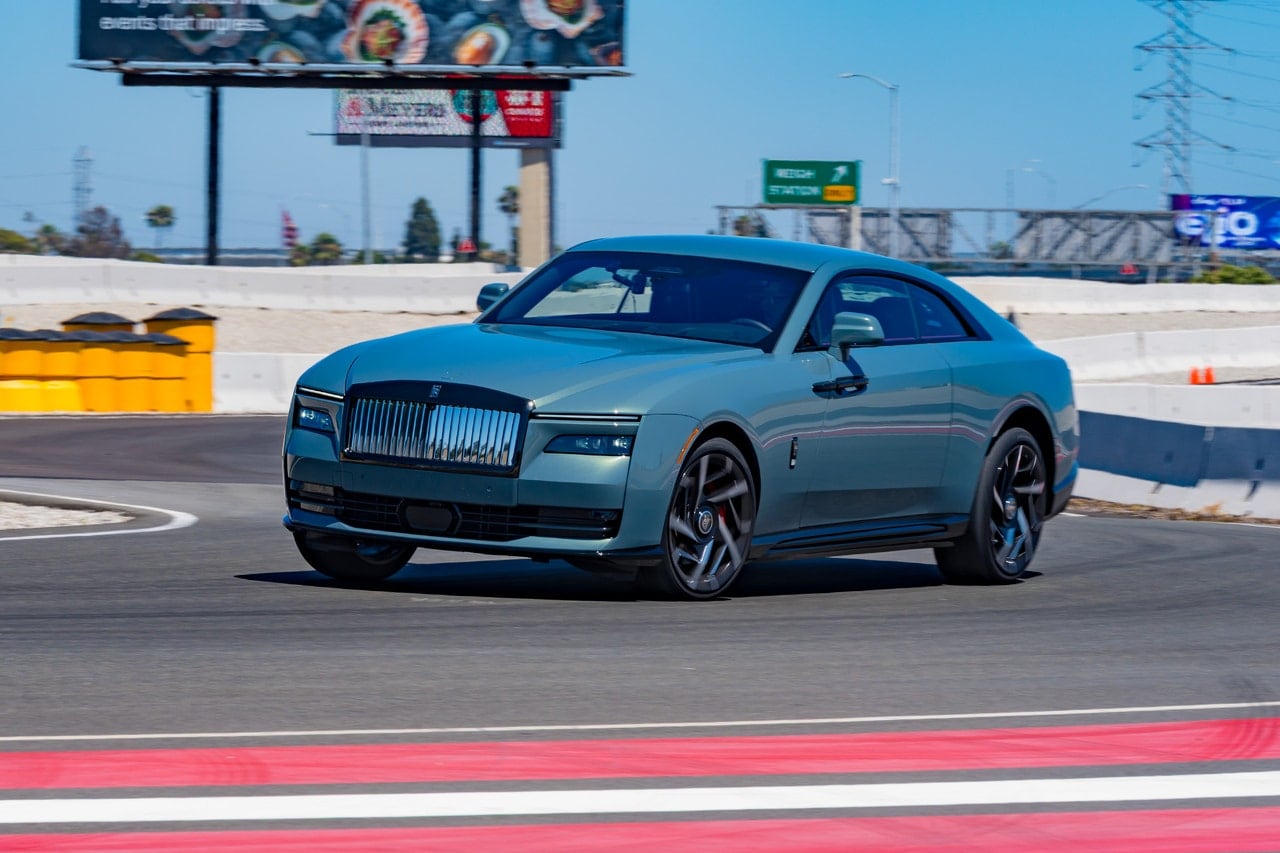
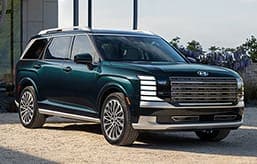
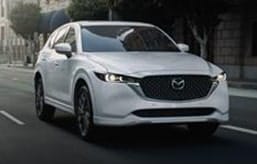
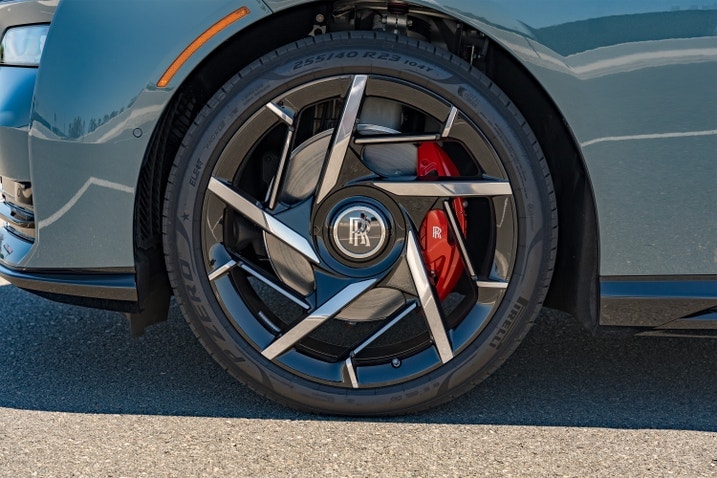
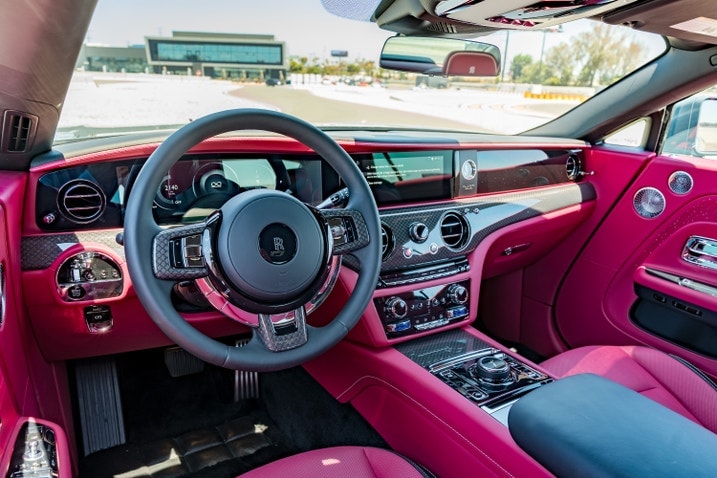
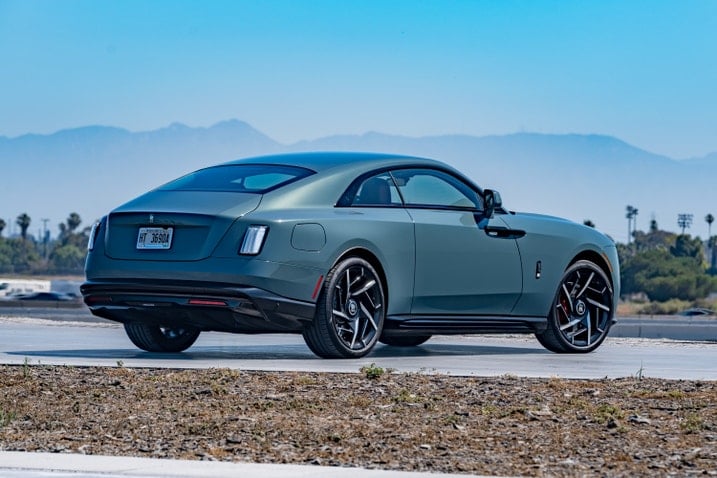
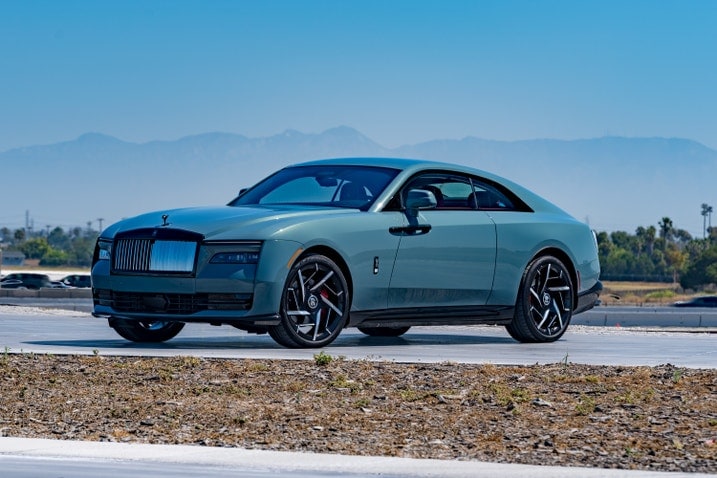
 by
by  edited by
edited by